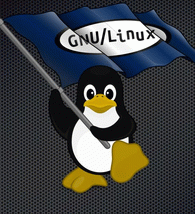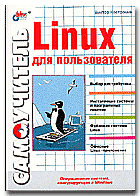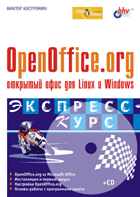Библиотека сайта rus-linux.net
The book is available and called simply "Understanding The Linux Virtual Memory Manager". There is a lot of additional material in the book that is not available here, including details on later 2.4 kernels, introductions to 2.6, a whole new chapter on the shared memory filesystem, coverage of TLB management, a lot more code commentary, countless other additions and clarifications and a CD with lots of cool stuff on it. This material (although now dated and lacking in comparison to the book) will remain available although I obviously encourge you to buy the book from your favourite book store :-) . As the book is under the Bruce Perens Open Book Series, it will be available 90 days after appearing on the book shelves which means it is not available right now. When it is available, it will be downloadable from http://www.phptr.com/perens so check there for more information.
To be fully clear, this webpage is not the actual book.
Next: 1. Introduction Up: understand-html Previous: Abstract Contents Index
Acknowledgments
The compilation of this document was not a trivial task and I am glad I did not know how much work was ahead of me when it was started two years ago. It would be remiss of me not to mention some of the people who helped me at various intervals. If there is anyone I missed, I apologise now. My only excuse is that I lost a significant percentage of my mail due to hardware failure and these acknowledgments are based on the emails I recovered.
First I would like to thank Dr. John O'Gorman, my first supervisor, who tragically passed away during the course of research. His patience and guidance is what ensured this thesis exists. May he Rest In Peace and personally I hope he would have been proud of this.
With the technical research, a number of people provided invaluable insight. Abhishek Nayani, who started the Linux Kernel Documentation Project, was a source of encouragement and enthusiasm for the project. It was through discussions with him and working on LKDP that I gained strong motivation for the work and deciphered some of the early subsystems, particularly the buddy allocator. Ingo Oeser kindly offered assistance should I became seriously stuck and provided a detailed explanation how data is copied from userspace with some valuable historical context. Scott Kaplan made numerous corrections to a number of systems from non-contiguous memory allocation, to swap management to page replacement policy. His criticisms and insight on both the thesis and VM Regress prevented me entering a number of blind alleys. Jonathon Corbet provides the most detailed account of the history of the kernel development through the years with the kernel page he writes for Linux Weekly News. Carlsberg doesn't do kernel documentation but if they did, they would pay Jonathon Corbet as LWN is possibly the best source for explaining kernel features on the Internet and worth every cent of the subscription fee. Zack Brown, the chief behind Kernel Traffic is the sole reason I did not drown in kernel related mail. Late in the game, Jeffrey Haran found the few remaining technical corrections and more of the ever-present grammar errors. Most importantly, he provided insight into some PPC issues that I was not aware of that I found most enlightening. They were greatly appreciated. Finally, I would like to thank my current supervisor Dr. Patrick Healy who kindly took over after John died. He was crucial to ensuring that this document is accurate, consistent and valuable to people who are familiar, but not experts, with the Linux Kernel or memory management. Without him, there are a number of sections that would be a lot more opaque.
A number of people helped with smaller technical issues and general inconsistencies where material was not covered in sufficient depth. I feel that there is a much larger list of people but I lost their mails so if you are one of the missing people, sorry. The people I do have are Muli Ben-Yehuda, Parag Sharma, Matthew Dobson, Roger Luethi, Brian Lowe and Scott Crosby. All of them sent corrections and queries on differnet parts of the document which ensured I did not assume too much prior knowledge of either the kernel or memory management.
Four people helped me polish the document and suffered through my grammar and spelling mistakes to make it readable for the rest of the world. Carl Spalletta sent a number of queries and corrections to every aspect of the thesis. Steve Greenland sent a large number of grammar corrections. Philipp Marek went above and beyond being helpful sending over 90 separate corrections and queries on various aspects. The last person, whose name I cannot remember but is an editor for a magazine sent me over 140 corrections against an early version to the document. You know who you are, thanks.
Three people sent a few corrections, though small, were still missed by several of my own checks. They are Marek Januszewski, Amit Shah, Adrian Stanciu, Andy Isaacson, Jean Francois Martinez, Glen Kaukola, Wolfgang Oertl, Aris Sotiropoulos, Michael Babcock, Kirk True and David Wilson.
On the development of VM Regress, there were nine people who helped me keep it together. Danny Faught and Paul Larson both sent me a number of bug reports and helped ensure it worked with a variety of different kernels. Cliff White, from the OSDL labs ensured that VM Regress would have a wider application than my own test box. Dave Olien, also associated with the OSDL labs was responsible for updating VM Regress to work with 2.5.64 and later kernels. Albert Cahalan sent all the information I needed to make it function against later proc utilities. Finally, Andrew Morton, Rik van Riel and Scott Kaplan all provided insight on what direction the tool should be developed to be both valid and useful.
The next long list are people who sent me encouragement, praise and thanks at various intervals. They are Martin Bligh, Paul Rolland, Mohamed Ghouse, Samuel Chessman, Ersin Er, Mark Hoy, Michael Martin, Martin Gallwey, Ravi Parimi, Daniel Codt, Adnan Shafi, Xiong Quanren, Dave Airlie, Der Herr Hofrat, Ida Hallgren, Manu Anand, Eugene Teo, Diego Calleja and Ed Cashin. Thanks, the encouragement was heartening.
In conclusion, I would like to thank a few people without whom, I would not have completed this. I would like to thank my parents who kept me in the University long after I should have been earning enough money to support myself. I would like to thank my girlfriend Karen, who patiently listened to numerous rants, tech babble, angsting over the project and made sure I was the postgrad with the best toys. Kudos to my friends who dragged me away from the computer periodically and kept me relatively sane, including Daren who is cooking me dinner as I write this. The last people I would like to thank are the thousands of hackers that have contributed to GNU, the Linux kernel and other Free Software projects over the years who without I would not have an excellent system to work and research with. It was an inspiration to me to see such dedication when I first started programming on my own PC 6 years ago after finally figuring out that Linux was not an application for Windows used for reading email.
Next: 1. Introduction Up: understand-html Previous: Abstract Contents Index Mel 2004-02-15






